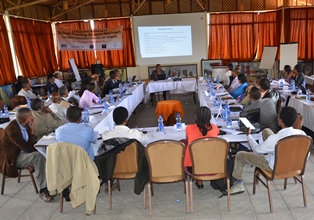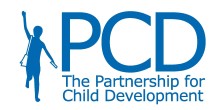 News
News  SABER - Supporting the transition to sustainable school feeding programmes in Mauritania, Ethiopia and Haiti
SABER - Supporting the transition to sustainable school feeding programmes in Mauritania, Ethiopia and Haiti
 For governments seeking to transition from donor assisted school feeding projects to nationally-owned programmes the Systems Approach for Better Education Results (SABER) is a vital analytical tool to help them identify policy gaps and develop effective action plans.
For governments seeking to transition from donor assisted school feeding projects to nationally-owned programmes the Systems Approach for Better Education Results (SABER) is a vital analytical tool to help them identify policy gaps and develop effective action plans.
To enable countries to make the most of this tool Imperial College London’s Partnership for Child Development, the UN’s World Food Programme and the World Bank have joined forces to conduct a series of national SABER workshops designed to analyse countries’ school health and school feeding policies and programmes.
SABER is designed to give participants a detailed, objective, up-to-date, easy-to-understand snapshot of how well their country's education system is oriented toward delivering learning, based on measures that can be easily compared across education systems around the world.
To aid this process the workshops follow a participatory approach to bring together policy makers and major stakeholders to exchange experiences and share information. To-date over 20 workshops have been conducted with the latest Mauritania opening on 13th October.
In August 2015 SABER workshops were held in Ethiopia and Haiti. The workshops have shown that the majority of countries have little or no policies based around any of the internationally agreed five standards of good practice deemed necessary for effective school feeding programmes (Policy
Frameworks; Financial Capacity; Institutional Capacity and Coordination; Design and Implementation and Community Engagement).
As a result support has centred on facilitating the workshops to draft action plans and where necessary create taskforces to put into place the policies needed to develop and sustain effective national school feeding programmes.
The next countries to benefit from these workshops will be Ghana and Cameroon in November and December respectively.
To find out more about SABER click here.



